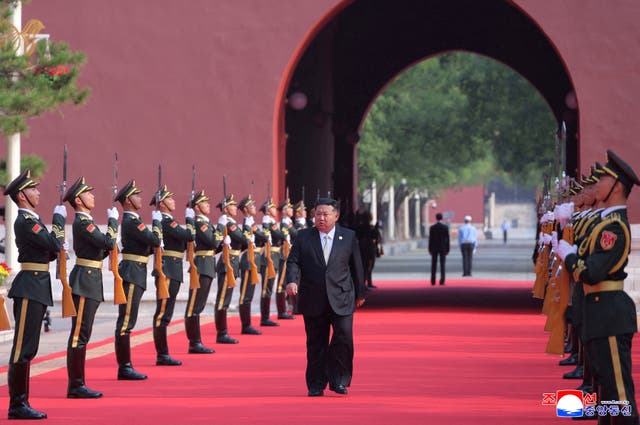A new report by the Office of the United Nations High Commissioner for Human Rights (OHCHR) says the government of North Korea has increased the use of the death penalty against people accused of watching or sharing foreign films, television dramas and music.
The report, published this week in Geneva, is based on interviews with 314 people who escaped from North Korea between 2014 and 2024. It concludes that the authorities have tightened control over almost every aspect of life during the past decade and are imposing harsher punishments to maintain that control.
Executions for foreign media
Since 2015, at least six new laws have been passed in North Korea allowing the death penalty for offences described as “anti-state propaganda”. According to the report, distributing foreign media such as South Korean television shows or popular music is now treated as one of these offences.
Witnesses told UN investigators that public executions by firing squad have taken place to punish the sharing of foreign content. They said these executions are intended to frighten others into obeying the law.
One woman, Kang Gyuri, who escaped in 2023, told the BBC that three of her friends were executed after being caught with South Korean media. She said she was present at the trial of one of them, a 23-year-old man.
“He was tried along with drug criminals. These crimes are treated the same now,” Kang said.
The report also referred to a case recorded by South Korea’s Unification Ministry, in which a 22-year-old North Korean was publicly executed in 2024 for listening to and sharing South Korean pop music and films.
“We do have credible evidence that individuals have been executed, not just for watching K-dramas. The crime is for distributing at a certain level, foreign information, foreign media,” said Liz Throssell, spokesperson for the OHCHR, at a briefing on Friday.
The report states that surveillance has become more pervasive, aided by improved technology, and that restrictions now cover political, social and economic life. It says border controls with China have been tightened and soldiers have been ordered to shoot people trying to cross, making escape almost impossible.
Many interviewees said they had expected life to improve when Kim Jong Un took power in 2011, after he promised they would no longer need to “tighten their belts” and would have enough food. But they said conditions worsened, especially after Kim abandoned talks with the United States and other countries in 2019 and focused instead on developing nuclear weapons.
Almost all of those interviewed said they had not been able to eat three meals a day in recent years. Several described deaths from hunger during the COVID-19 pandemic. They said the government made things worse by cracking down on informal markets that people used to survive.
The report describes an increase in forced labour. It says people from poor families, as well as orphans and street children, have been recruited into so-called “shock brigades” for dangerous work in construction and coal mines. Deaths are frequent but are publicly described as sacrifices to the leader.
“The government says that this is sort of a curriculum to help them learn life skills. But the information we’ve had for many years now is that it meets the qualification of forced labour because the children have no choice,” said James Heenan, head of the OHCHR office on North Korea.
The report also says at least four political prison camps are still operating. Former detainees told investigators that people there are subjected to torture, overwork and malnutrition, and that many have died from ill-treatment.
Volker Türk, the UN High Commissioner for Human Rights, warned: “If North Korea continues on its current trajectory, the population will be subjected to more of the suffering, brutal repression and fear that they have endured for so long.”
The OHCHR has called for the situation to be referred to the International Criminal Court in The Hague. This would require a decision by the United Nations Security Council, but both China and Russia have blocked similar measures since 2019.
North Korea, officially known as the Democratic People’s Republic of Korea (DPRK), has rejected the UN Human Rights Council resolution that authorised the report.
Earlier this month, Kim Jong Un appeared at a military parade in Beijing alongside Xi Jinping and Vladimir Putin, which the report says signals continued support from China and Russia despite the human rights findings.
The OHCHR report concludes that North Korea remains more isolated than any other country in the world, making it extremely difficult to monitor conditions or enforce international human rights standards. It urges the government to abolish political prison camps, end the use of the death penalty and begin teaching its citizens about human rights.



